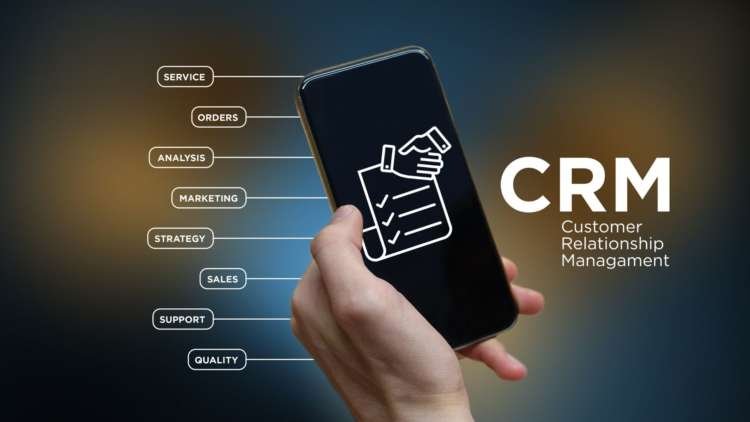The Common Mistakes SME Business Owners Make with CRMs
Published by linker 5
Posted on October 14, 2020
4 min readLast updated: January 21, 2026

Published by linker 5
Posted on October 14, 2020
4 min readLast updated: January 21, 2026

By Philip Mayling, Founder and CEO of BuddyCRM, a CRM solution developed by salespeople for salespeople.
Customer Relationship Management systems or ‘CRMs’ are used by a large majority of SMEs UK wide.
However, many of these SMEs do not use CRMs properly, mostly due to lack of time spent understanding the software. This then impacts its potential for increasing operational efficiencies, such as controlling your sales pipelines and improving staff performance.
When choosing the right CRM platform for your business, it is vital you consider what you want from it, to ensure it is able to compliment your business strategy. This is the key to CRM success, and without considering this, you may run into further obstacles along the way.
That said, what are some of the common mistakes Business Leaders make in choosing their CRMs and what prevents them from maximising its potential?
Popularity Vs Use
Time and time again SMEs will choose a CRM based on the platform’s popularity in the market, as opposed to whether it is the right CRM solution for their business. As a result, they find themselves stuck with an ‘off the shelf’ system that is not tailored to their needs.
When identifying the need for an CRM, SMEs should take the time to find the right system for their business and realise that popularity doesn’t necessarily translate to the best product suited to their business requirements. Often, smaller CRM companies can provide a more bespoke software, meaning it can be tailored to your specific business requirements.
Staff Buy In
A CRM system that is not optimised for your business will feel clunky and inefficient, discouraging staff members from using it, meaning it will not be utilised to its full potential. The key to successfully implementing a CRM solution into your business is getting your staff to realise its value for making their job easier so you ensure they buy into it. The more staff utilise, engage with and rely on a CRM, the more powerful it will become in pushing your business forwards, by driving new revenue and increasing both staff and operational efficiencies; whilst saving time, cost and resource.
Tailored Workflows

Philip Mayling
The most powerful CRM solutions are those that offer tailored workflows, which simply is not an option in low-cost ‘off the shelf’ products. Tailored workflows allow SMEs to create unique solutions to effectively manage their own customer contact and sales processes in order to improve operations and drive scalability.
For example, many businesses, like large construction firms, rely on the use of excel spreadsheets to manage both customer details and new sales enquiries. Aside from preventing easy collaboration between staff members, it can be difficult to locate and monitor specific information via excel as there is no reporting functionality in place. In transferring excel to a bespoke CRM solution, SMEs can benefit from tailored workflows that easily document and produce the right information within seconds, ranging from existing customer details and new sales enquiries to staff performance and conversion rates.
Understand Value
When SMEs invest in the right CRM platform that is tailored to their needs and able to significantly enhance operations, CRMs become invaluable in driving the future growth and development of the business in hand.
Unfortunately, due to negative experiences in choosing the wrong CRM solution, many SMEs do not understand the true value that the right CRM can offer. When the right system is in place, CRMs provide countless benefits from increasing customer retention, to aiding unique business intelligence; both of which are vital as UK businesses continue to battle for survival amidst the current economic climate.
Manage expectations
Sometimes, SMEs can become so excited about their new CRM system, they set goals that are too ambitious and introduce features that can be confusing to users who are unfamiliar with the system.
To increase the likelihood that users will adopt to the system, a multi-step plan should be outlined, introducing basic inputs first, before introducing more complicated goals and tasks. This will keep users happy and comfortable when using the CRM.
It is also a good idea to set solid goals when first implementing the system. This will help illustrate whether the CRM is working in different areas of your business and can help manage your expectations. By doing so, you can flag any areas where the system may not be performing as well and look specifically at why this may be.
Explore more articles in the Business category











